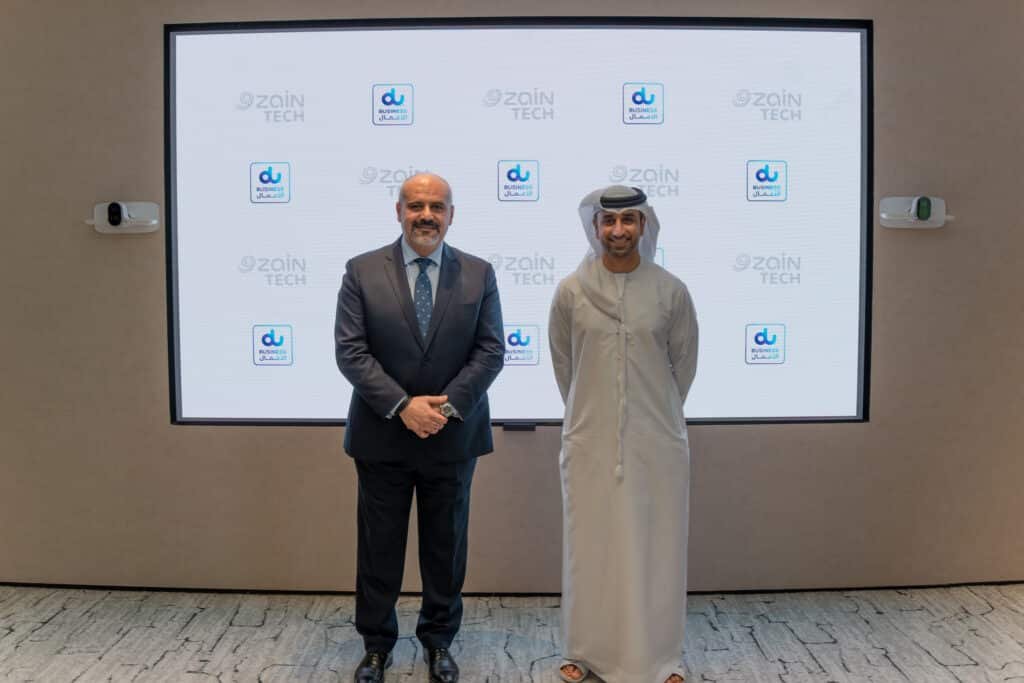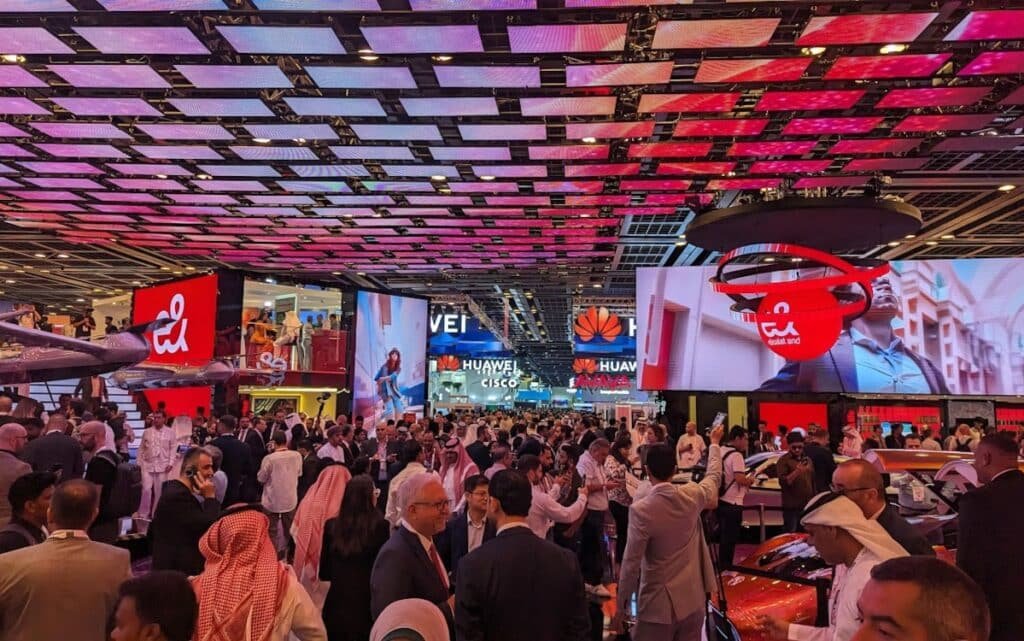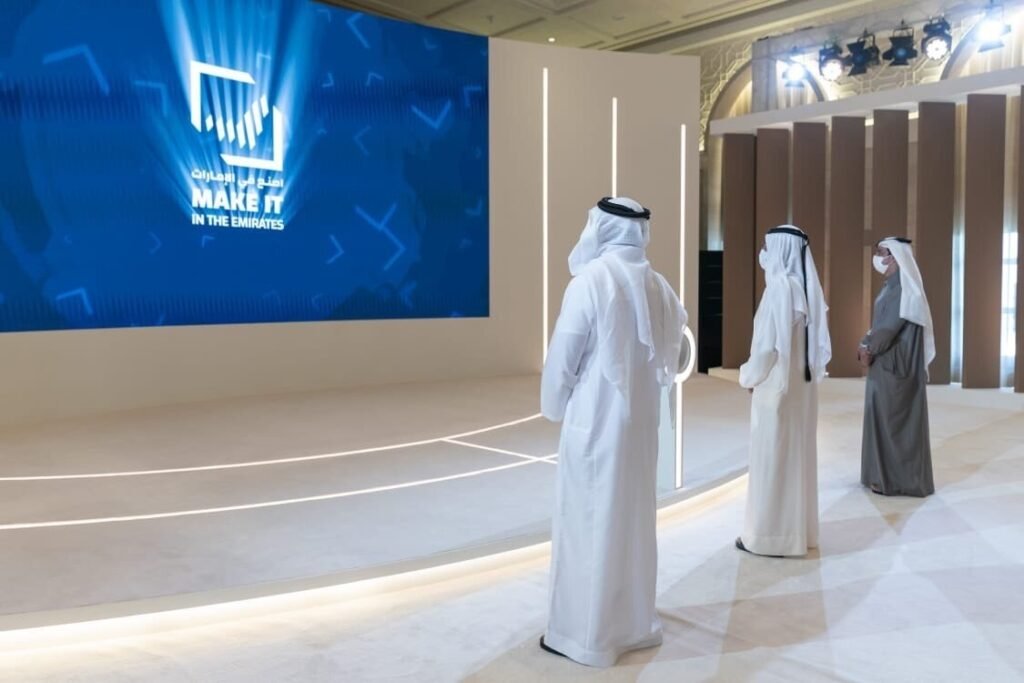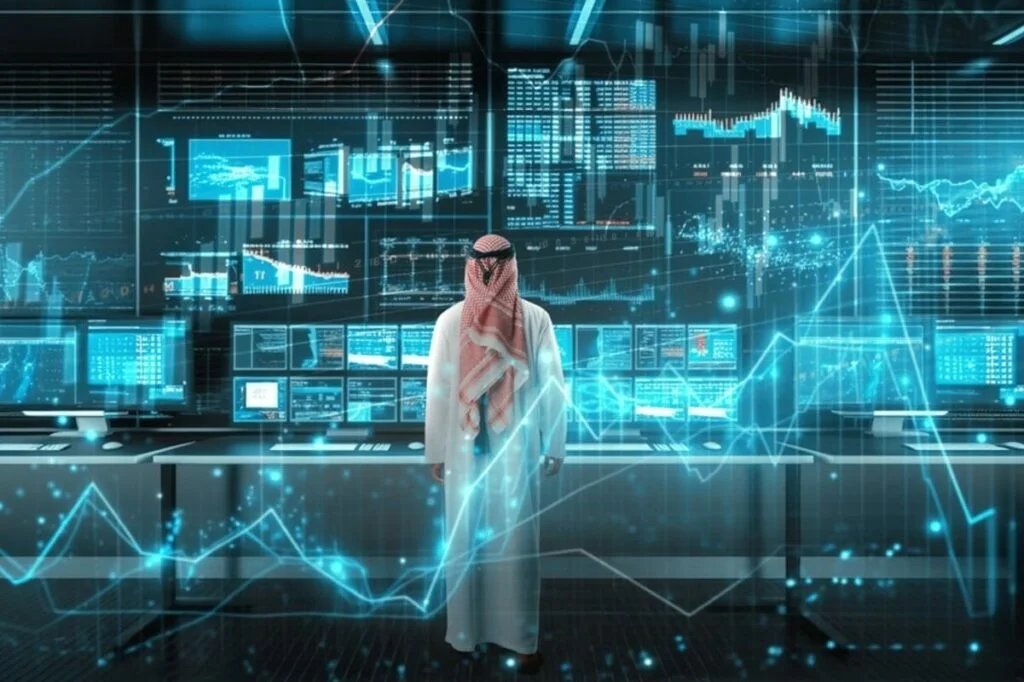In the United Arab Emirates, a vibrant hub of commerce and technology, businesses are increasingly turning to artificial intelligence (AI) to streamline operations and enhance customer experiences. Here, we’ll look at how AI is making things better in the UAE.
This strategic embrace of AI is transforming various sectors, from retail and banking to healthcare and hospitality, demonstrating how technology can work hand-in-hand with traditional services to create more efficient, customer-centric solutions.
AI technology in the UAE is not just a trend but a cornerstone of the country’s economic vision.

The Emirates has been proactive in its approach to digital transformation, as evidenced by its AI Strategy 2031, which aims to position the UAE as a global leader in AI by 2031, enhancing its competitiveness in AI research and development and its application across various economic and scientific sectors.
One prominent example of AI integration is in the banking sector. Banks such as Emirates NBD have implemented AI-driven chatbots that handle customer inquiries and transactions without human intervention, available 24/7.
This not only enhances customer experience by providing instant assistance but also improves operational efficiency by freeing up human employees for more complex service tasks.

Retailers in the UAE are also harnessing AI to personalize shopping experiences.
By analyzing data on purchasing patterns, AI algorithms can suggest products that customers are more likely to buy, improving satisfaction and boosting sales.
For instance, Majid Al Futtaim, a leading retail giant in the Middle East, has adopted AI in its Carrefour stores to optimize supply chain management and customer relations.

In the healthcare sector, AI is revolutionizing service delivery by powering diagnostic tools that provide faster and more accurate assessments.
The Dubai Health Authority (DHA) employs AI systems to help in diagnosing diseases and predicting patient outcomes.
This not only speeds up the diagnostic process but also significantly enhances the accuracy of treatments prescribed.

The hospitality industry in the UAE is using AI to create personalized experiences for guests.
Hotels employ AI to analyze data from customer preferences and feedback to tailor services and recommendations that meet individual guest needs.
Emaar Hospitality Group, for example, uses AI-driven systems to enhance visitor experiences in their properties by offering personalized dining and entertainment recommendations.
Moreover, AI integration extends to more traditional sectors like transportation, where it is used to manage traffic flows and improve safety.

The Roads and Transport Authority (RTA) in Dubai has implemented AI in traffic management systems to reduce congestion and enhance road safety by analyzing real-time traffic data and optimizing traffic light sequences accordingly.
Even the real estate sector benefits from AI, with agencies using algorithms to predict market trends and suggest investment opportunities to clients.
Tools like chatbots assist customers by answering queries about property features, pricing, and legal requirements, making the real estate purchasing process smoother and more interactive.

The UAE’s robust AI ecosystem is supported by a strong governmental push towards innovation, evident in initiatives like the Dubai Future Foundation and the Abu Dhabi AI Academy.
These initiatives aim to foster AI talent and research, ensuring that the workforce remains skilled in the latest technological advancements.
In conclusion, as the UAE continues to cultivate its reputation as a futuristic hub, the integration of AI across multiple business sectors is not just enhancing traditional services but redefining them.

Businesses in the UAE are leveraging AI to not only improve operational efficiencies but also to ensure that services are more attuned to the needs and expectations of today’s tech-savvy consumers.
This strategic deployment of AI stands to significantly boost the UAE’s competitive edge on a global scale, marking a new era of technological integration in the heart of the Middle East.



